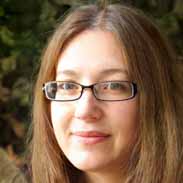Homestead Act to Dawes Severalty Act – Flashcards
Unlock all answers in this set
Unlock answersquestion
Homestead Act
answer
1862 - Provided free land in the West to anyone willing to settle there and develop it. Encouraged westward migration.
question
Granger Movement
answer
1867 - Nation Grange of the Patrons of Husbandry. A group of agrarian organizations that worked to increase the political and economic power of farmers. They opposed corrupt business practices and monopolies, and supported relief for debtors. Although technically not a political party, local granges led to the creation of a number of political parties, which eventually joined with the growing labor movement to form the Progressive Party
question
Indian Appropriations Act
answer
1851 - The U.S. government reorganized Indian land and moved the Indians onto reservations.
question
Chivington Massacre
answer
November 28, 1861 - Colonel Chivington and his troops killed 450 Indians in a friendly Cheyenne village in Colorado.
question
Battle of Little Big Horn
answer
1876 - General Custer and his men were wiped out by a coalition of Sioux and Cheyenne Indians led by Sitting Bull and Crazy Horse.
question
Chief Joseph
answer
Lead the Nez Perce during the hostilities between the tribe and the U.S. Army in 1877. His speech "I Will Fight No More Forever" mourned the young Indian men killed in the fighting.
question
Battle of Wounded Knee
answer
1890 - The Sioux, convinced they had been made invincible by magic, were massacred by troops at Wounded Knee, South Dakota.
question
Helen Hunt Jackson
answer
A muckracker whose book exposed the unjust manner in which the U.S. government had treated the Indians. Protested the Dawes Severalty Act.
question
Dillingham Commission Report
answer
1911 - Congressional commission set up to investigate demands for immigration restriction. It's report was a list of complains against the "new immigrants."
question
Jane Adams Hull House
answer
Social reformer who worked to improve the lives of the working class. In 1889 she founded Hull House in Chicago, the first private social welfare agency in the U.S., to assist the poor, combat juvenile delinquency and help immigrants learn to speak English.
question
Chinese Exclusion Law 1882
answer
Denied citizenship to Chinese in the U.S. and forbid further immigration of Chinese. Supported by American workers who worried about losing their jobs to Chinese immagrants who would work for less pay.
question
American Protective Association
answer
A Nativist group of the 1890s which opposed all immigration to the U.S
question
James Bryce
answer
Opposed the Nativist sentiment and promoted the "melting pot" idea of American culture.
question
Frank Llod Wright
answer
Considered America's greatest architect. Pioneered the concept that a building should blend into and harmonize with its surroundings rather than following classical designs.
question
Anthony Comstock (1844-1915)
answer
Social reformer who worked against obscenity
question
Social Darwinism
answer
Applied Darwin's theory of natural selection and "survival of the fittest" to human society -- the poor are poor because they are not as fit to survive. Used as an argument against social reforms to help the poor.
question
Andrew Carnegie (1835-1919)
answer
Carnegie was an American millionaire and philanthropist who donated large sums of money for public works
question
The Gospel of Wealth
answer
Andrew Carnegie's book which argued that the wealthy have an obligation to give something back to society.
question
Herbert Spencer (1820-1903)
answer
British, developed a system of philosophy based on the theory of evolution, believed in the primacy of personal freedom and reasoned thinking. Sought to develop a system whereby all human endeavours could be explained rationally and scientifically.
question
Social Gospel
answer
A movement in the late 1800s / early 1900s which emphasized charity and social responsibility as a means of salvation.
question
Chautauqua Movement
answer
One of the first adult education programs. Started in 1874 as a summer training program for Sunday School teachers, it developed into a travelling lecture series and adult summer school which traversed the country providing religious and secular education though lectures and classes.
question
Morril Act
answer
1862 - Set aside public land in each state to be used for building colleges.
question
Hatch Act 1887
answer
1887 - Provided for agricultural experimentation stations in every state to improve farming techniques.
question
Edward Bellamy
answer
1888 - Utopian novel which predicted the U.S. woudl become a socialist state in which the government would own and oversee the means of production and would unite all people under moral laws.
question
"Gilded Age"
answer
A name for the late 1800s, coined by Mark Twain to describe the tremendous increase in wealth caused by the industrial age and the ostentatious lifestyles it allowed the very rich. The great industrial success of the U.S. and the fabulous lifestyles of the wealthy hid the many social problems of the time, including a high poverty rate, a high crime rate, and corruption in the government.
question
Nouveau Riche
answer
French for "new rich." Refered to people who had become rich through business rather than through having been born into a rich family. The nouveau riche made up much of the American upper classof the late 1800s
question
Dawes Severalty Act, 1887
answer
Also called the General Allotment Act, it tried to dissolve Indian tribes by redistributing the land. Designed to forestall growing Indian proverty, it resulted in many Indians losing their lands to speculators



